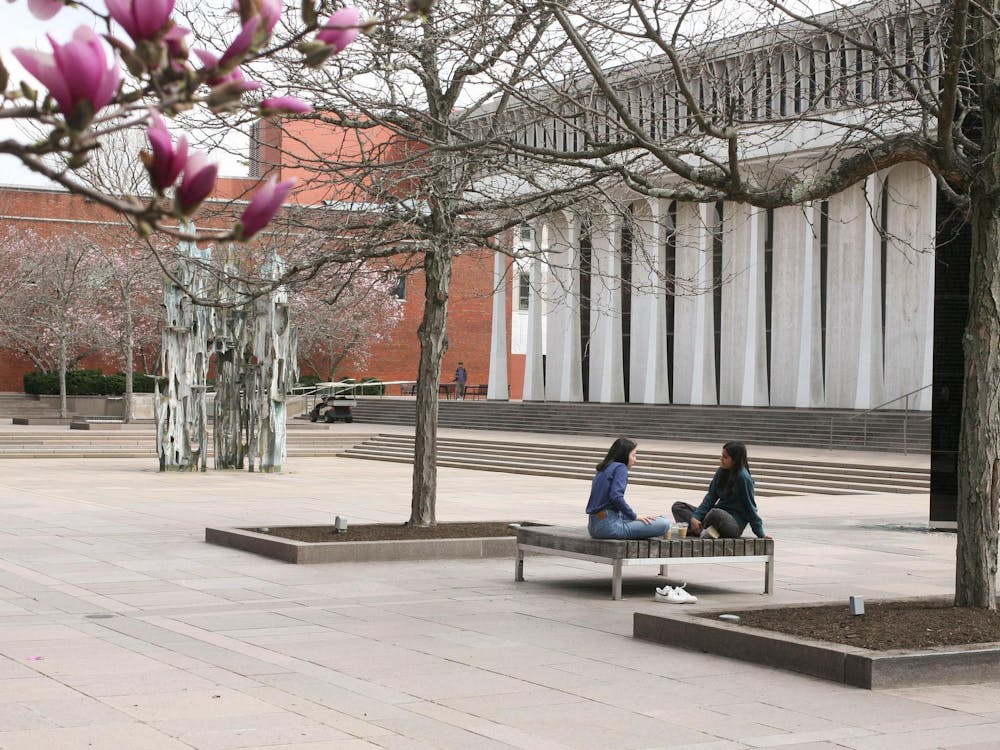Earlier this week, along with other veterans of the Israeli Defense Forces, I signed a letter in support of J Street U Princeton’s decision to invite the Israeli NGO Breaking the Silence, composed of former IDF soldiers who seek to share their military experiences in the West Bank with Israeli society. J Street U had requested to host the photo exhibition in the Center for Jewish Life, and was turned down, sparking some controversy. Our letter did not address the role the CJL at Princeton played in this episode; I would like to do so here.
The official reason given for the CJL’s refusal, that the exhibition coincides with Israeli Memorial and Independence Days, seems dubious. BtS had no intention of holding the exhibition on either of these dates. The details remain murky, presumably purposely so, but they are not important. Nor are the intentions of the decision makers at the CJL, which I am far from doubting. What is important is the significance of what, with the greatest charity, could only be described as an unequivocal reluctance to host BtS. In order to appreciate its significance, context is needed.
As fate would have it, the previous week the Israeli Prime Minister, Benjamin Netanyahu, canceled his scheduled meeting with the German Foreign Minister in anger over the latter’s meeting with representatives of BtS and B'Tselem, which documents human rights violations in the occupied territories. Netanyahu used the same excuse, calling the minister’s meeting with these representatives in the week between Holocaust Remembrance Day and Memorial Day “tactless and insensitive.”
The truth, as reported in Haaretz, is different. Netanyahu meant only to pander to his political base, not actually to endanger diplomatic relations with Germany, which is why the Israeli Foreign Ministry, headed directly by Netanyahu, directed the Israeli President to meet with the German Foreign Minister. The next day, the Deputy Foreign Minister called BtS and other left-wing organizations “enemies of the state,” comparing them to Hamas.
In light of the CJL’s almost literal adoption of Netanyahu’s rhetoric, its refusal — not to mention its alleged attempt to thwart BtS’s very visit to campus, and threat to cut ties with J Street U — implicitly acknowledges Netanyahu’s branding of BtS as illegitimate and obsequiously furthers it by extending the sphere of its de-legitimization within the Jewish world. In doing so, the CJL ironically aligned itself with Israeli politicians who do not consider Conservative or Reform Jews to be Jews at all, and who believe the idea of a female rabbi to be sacrilege.
A few days after Netanyahu’s deputy declared them “enemies of the state,” two Israeli-Palestinian NGOs, Combatants for Peace and the Parents Circle, held their 12th annual joint Memorial Day ceremony, honoring victims from both sides. The Israeli Minister of Defense refused to grant permits to 225 Palestinians who applied to enter Israel in order to attend the joint ceremony — that is, to honor fallen Israeli soldiers and victims of terrorism.
Instead, Israelis traveled to the West Bank to hold a joint ceremony with them there. Four thousand other Israelis, among them members of bereaved families, crowded into a basketball arena in Tel Aviv for the main ceremony, and on their way in and out were attacked by scores of right-wing activists who, on the eve of Memorial Day, called them “Nazis,” “whores,” and “traitors,” who spat at them, threatened them, and hurled bags of urine at them. The police did little to intervene. The government did not condemn the violence; the Twitter account of the Israeli Minister of Education, Naftali Bennett, belittled its victims. The next political murder is but a matter of time.
The significance of the refusal to host BtS within this context, then, is complicity in the persecution of the Israeli left and in the attempts of the Netanyahu regime to quash resistance to the occupation. As the Israeli public has no right to silence the testimonies of soldiers it sent to the occupied territories, the CJL does not have the right, at least as long as it counts Israel as one of its “pillars,” along with leadership and social justice, to willfully ignore the occupation, let alone take part in the despicable attempt to erase it from public discourse. Through its pillars, the CJL’s mission states that it “aspires to lay the foundation for Jewish adulthood.” What kind of Jewish adulthood do its decision-makers set as an example for students, and what kind of foundation does it lay by being complicit in the greatest moral failing in Jewish history?
As an Israeli, I feel betrayed by the CJL. As a Jew, I am ashamed.
Teddy Fassberg is a member of Combatants for Peace and a graduate student in the Classics department. He can be reached at fassberg@princeton.edu.








